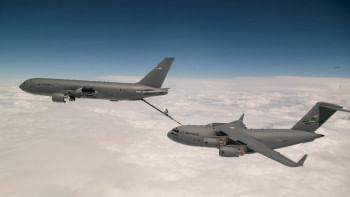The inexplicable case of Argentina’s second coming

Bangladesh is a queer case of polar extremes.
While a majority of the population continues to live in hardship, barely making ends meet in the face of the global economic crisis stemming from the aftereffects of the pandemic and exacerbated by Russia's war with Ukraine, there is a section of people who continue to get richer, profiting from the crisis of essentials and holding people hostage to market manipulation.
This may be a global trend, but what sets Bangladesh apart from much of the developing and developed world is the utter disregard from the privileged few in society towards the plight of the common people.
Take the case of the Argentine football team's purported visit to Bangladesh in June this year and it will be crystal clear how indifferent some people are to the ongoing economic hardship.
Our banks are struggling to open credit lines to import daily essentials owing to a sliding foreign reserve, the government is withdrawing subsidies on oil and gas to industries, and the prices of power and gas in households are being consistently increased -- all putting more pressure on the middle-and-lower-income families as inflation keeps rising. Take a look at the ever-extending queues for the OMS commodities on the streets and there should be no doubt about what it is all leading to.
As the World Bank foresees a global recession in 2023 and our government adopts belt-tightening policies at all levels, the idea of hosting a football match between two foreign nations, however popular they may be, is not just perplexing but downright indecent.
What can we realistically achieve from such a match if it does really take place? Will it create a resurgence in our football as is preached by some of our football officials? Not an iota of a chance. We all know what happened the last time Argentina came to Bangladesh, back in 2011, towards the end of Kazi Salahuddin's first four-year term at the BFF helm.
Bangladesh's FIFA ranking at that time was 139. Twelve years later, Bangladesh are languishing at 192nd position -- just 19 places from the bottom of the table -- having endured a freefall in the intervening period and never really looking like taking an upturn.
Salahuddin has been re-elected to the top position of the county's football three times since, and all that he can boast about is regional successes in women's football and being able to stage the top-tier league regularly.
The men's team, which is what countries' footballing standing is identified mostly by, has not been able to make it to the semifinal stage of the SAFF Championship even once over these years.
However, the biggest failure of the Salahuddin-led committees has been a failure to produce quality footballers from the grassroots level, owing partly to a stagnant and irregular football scene outside the capital. The inability to set up a decent football academy due to a lack of funds is another issue that, experts believe, has stunted the potential growth of the country's football.
If the allegations of misappropriation of funds and the lack of transparency in audits of the accounts are thrown into the mix, we get a fair idea of what the country's football is going through and where it is headed.
While there was euphoria among the masses regarding Argentina's match against Nigeria on September 6, 2011, the BFF was in a spot of bother when it was asked to clear the payments for the Argentina team on the eve of the team's arrival. IFIC Bank, whose chairman is the owner of Beximco Group -- the main sponsors for that match -- bailed the BFF out with a loan of Tk 8 crore.
12 years after that event, the BFF still owes IFIC Bank more than Tk 5.4cr in principal and interest, according to BFF high-ups. That match reportedly cost 40 crore taka. And, barring a mere pittance, most of that amount went out of the country as we did not have either the marketing tools or the ability to sell the match to foreign sponsors or broadcasters.
There is no reason to believe much has changed in that regard, except for the fact that Argentina will come this time as world champions, meaning their price tag is much higher.
Salahuddin recently told the media that it would take around seven million dollars at least to bring the Albiceleste to Dhaka, with the whole package, including expenses for the other team, very well seeing costs balloon to as much 10 million dollars.
While the BFF initially backtracked a bit after having announced that Argentina's visit was a sure shot, they have since claimed that the negotiations with their Argentine counterparts were on the right track. Salahuddin, along with his colleagues at the federation, has always remained confident that sponsorship for this match will not be an issue.
How can they be so certain of arranging sponsors for such an expensive venture when the federation struggles to find a half-decent sponsor to run the leagues or even a football academy? Isn't it time we lay the foundations to produce our own Messis and Di Marias instead of burning all that money for just a 90-minute spectacle?
It all begs the question whether the desperation over bringing Argentina to Bangladesh is just a case sportswashing for Bangladesh and Bangladesh football.

 For all latest news, follow The Daily Star's Google News channel.
For all latest news, follow The Daily Star's Google News channel. 



Comments